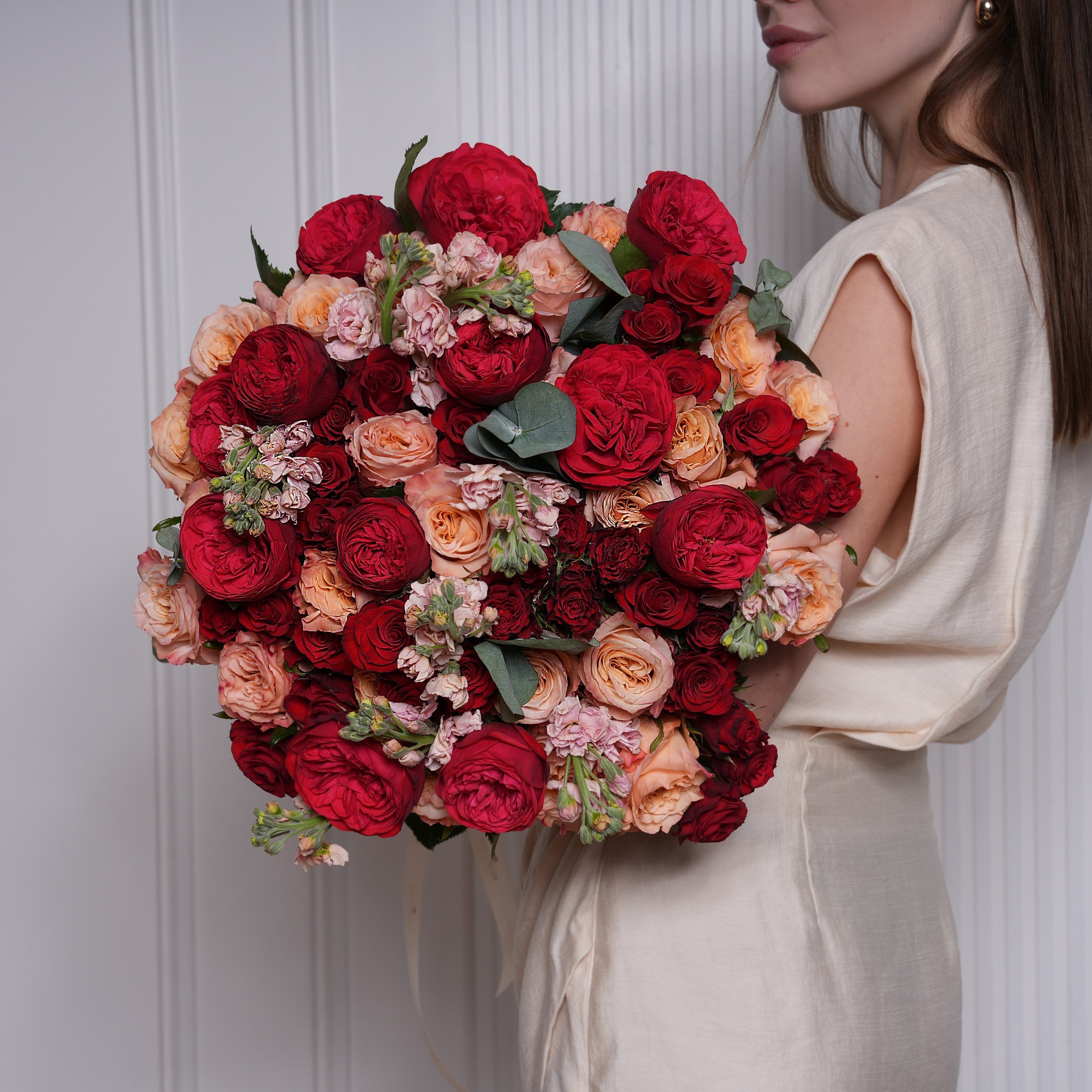When we admire the delicate petals of a rose or the gentle sway of a sunflower in the breeze, it's easy to assume that flowers are passive beauties-fragile ornaments in the ecosystem. But what if that’s not the whole story? What if flowers respond to their environment in ways that challenge our assumptions about plant life?
One might not expect the conversation about consciousness, perception, or feeling to extend to flowers. Yet, recent research is sparking fascinating debates among scientists, philosophers, and nature lovers alike. From subtle electrical signaling to complex hormonal pathways, plants-especially flowers-are anything but inert.
If you're fascinated by the complexity of plants and want to surround yourself with nature’s finest, you’ll love the vibrant options available at this flower collection. But first, let’s dig into the science and ask the big question: can flowers feel?
🌼 What Does It Mean to “Feel”?
Before we dive into science, let’s clarify what we mean by “feel.” In animals, feeling typically involves:
-
Sensory detection (touch, temperature, pain)
-
Nervous system processing
-
Emotional experience or subjective awareness
Plants don't have brains, nerves, or a central nervous system, so can we even apply the term "feel" to them?
Scientists have long dismissed the idea, citing a lack of neural architecture. But recent studies suggest that plants respond to stimuli in complex and intelligent ways-blurring the lines between reflex and perception.
🌱 Plants React to Stimuli… But Is It Feeling?
Flowers and their plant cousins have evolved remarkable survival mechanisms. Here’s how:
📡 Electrical Signaling
Plants generate electrical signals, much like our nerve impulses, called action potentials. These signals:
-
Travel between cells
-
Trigger defensive reactions (e.g., releasing bitter compounds when bitten)
-
Are altered by external stimuli (touch, light, sound)
For example, Mimosa pudica, the “touch-me-not” plant, folds its leaves when touched. Though this response is more obvious in leaves, similar signaling occurs in floral tissues.
🔊 Response to Sound and Vibration
In 2019, Tel Aviv University researchers discovered that flowers can “hear” the buzz of pollinators. Within minutes of detecting the frequency of a bee’s wings, certain flowers increased nectar production by up to 20%.
The key takeaway? Flowers might detect and react to sound vibrations, suggesting a sensory system more complex than we ever imagined.
🌸 Chemical Communication: The Language of Scent
Flowers produce aroma compounds (volatile organic compounds) not just to attract pollinators-but also to communicate stress or danger.
🚨 Alarm Signals
When a flower is damaged, it may release chemicals to warn neighboring plants. These compounds can:
-
Repel herbivores
-
Attract predatory insects that feed on pests
-
Trigger immune responses in nearby flowers
This type of communication is often called “plant neurobiology,” even though it occurs without neurons.
🌿 Hormonal Responses and Stress Adaptation
Plants use hormones like jasmonic acid, ethylene, and abscisic acid to respond to stressors such as:
-
Drought
-
Pollution
-
Insect attack
-
Mechanical damage
Flowers in particular show dramatic changes during these responses:
-
Petal closure
-
Color fading or intensification
-
Nectar reduction
-
Growth inhibition or acceleration
All of this raises the question: If a flower can sense stress and react to protect itself or attract help, is that not a rudimentary form of perception?
🧠 But Do Flowers Have Memory?
Astonishingly, yes-at least a form of it.
In 2014, a study published in Oecologia showed that Mimosa pudica plants “learned” to stop reacting to repeated, non-harmful touches. This learning persisted for weeks, even without a brain.
In floral species, memory might be involved in:
-
Opening and closing petals at specific times (circadian rhythm)
-
Adjusting nectar output based on pollination history
-
Releasing scents according to visitor patterns
These behaviors indicate information storage and retrieval, traits once thought exclusive to animals.
🌼 Do Flowers Have Emotions?
This is the trickiest question. Science hasn’t yet found evidence that plants experience emotions the way humans or animals do.
But consider this:
-
Emotions in animals often originate from survival-based responses (fear = flee; pleasure = repeat)
-
Flowers also adapt to survive through complex responses
So while they likely don’t feel “happy” or “sad,” flowers exhibit behavior that achieves similar outcomes-adaptive, responsive action that favors survival and reproduction.
🌺 Can Flowers Recognize You?
There’s no scientific consensus yet, but some researchers speculate that plants can distinguish between different types of touch, sound, and even human interaction.
A few fringe studies claim that plants grow better when spoken to or handled gently, though results remain controversial.
🌷 Ethics and Floral Sensitivity
If flowers truly respond to their environments in such intelligent ways, should we rethink how we interact with them?
🌱 Ethical Questions:
-
Should large-scale floral farming be more sustainable?
-
Are there ways to harvest flowers with minimal stress to the plant?
-
Should schools and city planners plant more pollinator-friendly flowers?
Fortunately, businesses like Ecoroses LA are leading the way in ethical flower sourcing, ensuring beauty and biodiversity go hand-in-hand.
🌼 Flower Awareness: Fact or Fiction?
Let’s review what science supports-and what remains speculative.
|
Claim |
Evidence |
Conclusion |
|
Flowers respond to touch |
Proven |
Real-time physical changes observed |
|
Flowers react to sound |
Strong evidence |
Nectar increase after bee buzzing |
|
Flowers can "remember" stimuli |
Supported by studies |
Plant memory is real, though different |
|
Flowers feel emotions |
No direct evidence |
Metaphorical only |
|
Flowers recognize individual people |
Not yet proven |
Requires more research |
🌸 What Does This Mean for Gardeners & Florists?
If flowers are more responsive than we thought, treating them with care isn't just aesthetic-it's scientific.
Tips for Handling Flowers More Thoughtfully:
-
Avoid rough handling when cutting or arranging
-
Choose organic methods to avoid chemical stress
-
Speak or play gentle music-if nothing else, it creates a calming space
-
Rotate arrangements to evenly expose flowers to light
💐 Flowers Are More Alive Than We Think
The next time you admire a blooming lily or present a bouquet to a loved one, remember: you're interacting with a lifeform that perceives, reacts, and adapts.
While we can’t yet say that flowers feel in the way humans understand it, science shows they are far from unfeeling.
Their silent, steady responses to sound, touch, and danger remind us that nature doesn’t need a brain to be brilliant.
🌸 Final Thoughts
In a world increasingly interested in consciousness and connection, flowers represent a frontier of untapped understanding. The science of plant behavior is just beginning to bloom-much like the subjects it studies.
Whether you're intrigued by their biology or simply love their beauty, one thing is clear: flowers are far more than petals and perfume.
They’re living, responsive, and astonishingly sophisticated parts of our shared planet.
If this fascinates you, take a closer look at what nature offers in every stem and bloom at Ecoroses LA’s floral shop.


